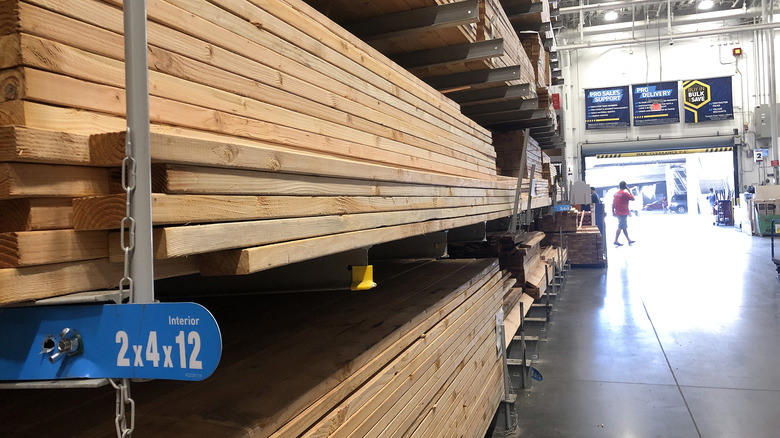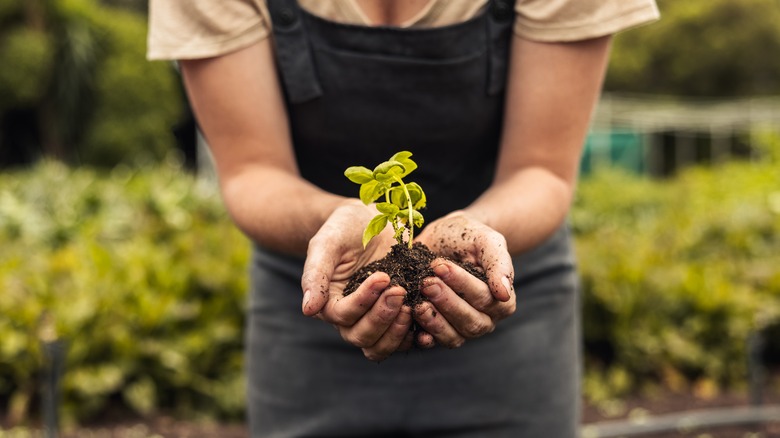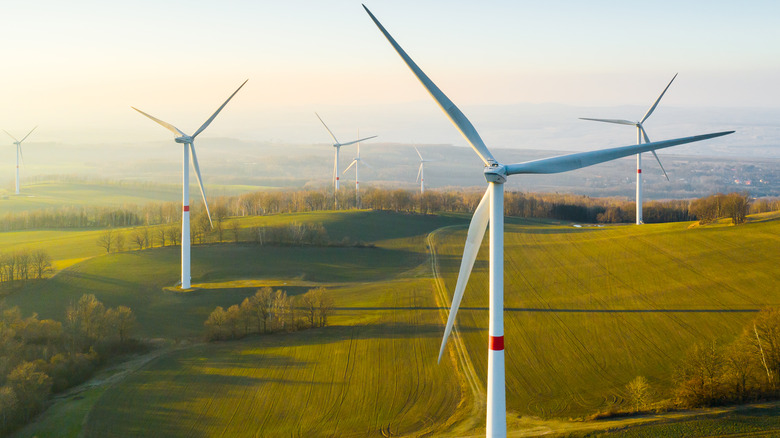Is Lowe's A Socially Responsible Company?
Whether you need to repair a leaking toilet or find the latest options in gardening supplies, Lowe's is a versatile company that can offer you most of the items you need to keep your home in great condition. It's quite a large company with 1,971 locations around the world, according to Statista data from 2021, and over $96 billion in global net sales. Lowe's supply chains wrap around the world, and with the support of many other subsidiaries and affiliates, the company's corporate actions impact the planet as well as the individual communities it operates within.
Recognizing the size of Lowe's is important when you wish to consider how socially responsible the company is. With such a sizable impact on the world, we can guess that the international home improvement retailer has a significant carbon footprint as well as many employees to take care of. As companies pursue efforts to become socially responsible, let's look at the steps and strategies Lowe's is implementing to see how they stack up in regard to environmental practices and creating positive change in communities.
Sustainability policy
Lowe's has a sustainability policy in place in which the company recognizes the importance of the decisions made when sourcing products, choosing organizations with which to partner, and supporting the world around them. Through this policy, the company offers several ways staff are working to reduce their overall carbon footprint, including a strong focus on responsible sourcing and waste reduction throughout all operations. Lowe's promised to make it easier for company stakeholders to see how they are measuring their carbon footprint, including how they account for greenhouse gas emissions.
The company notes the work done to choose products that are more eco-friendly for warehouse shelves, and says they often work on expanding their offerings with more sustainable products. By seeking innovative solutions, Lowe's intends to supply customers with product options that support the planet, yet the company doesn't want to stop there. Lowe's also wants to educate and support customers in making eco-friendly choices when visiting their stores.
Renewable energy agreement
In 2018, Lowe's launched a renewable wind energy agreement as another step towards reducing company-wide emissions. The agreement with Clearway Energy set out to provide the organization with 100 megawatts of wind power, considered a cleaner source of energy. When announced, the company stated that this amount of energy would be enough to keep all 143 retail locations in Texas powered without the reliance on traditional forms of energy, and that it was the equivalent in terms of impact as planting seven million trees.
The company noted further plans for reducing carbon emissions, such as implementing LED light bulbs in 130 locations and installing high-efficiency HVAC rooftop units across 100 stores. Additional changes within stores to reduce overall energy demands included the implementation of variable fan drives in 365 locations and improved building management systems in almost 200 locations. These efforts indicate that Lowe's is continually working to find ways to be socially responsible from an environmentally conscientious standpoint.
Human rights
Another component of social responsibility focuses on human rights and how a company treats its employees. Through research from Ecountabl, it's clear to see Lowe's is taking steps to improve areas of racial justice and human rights. This may include making changes to its supply chain to ensure all companies within it offer basic human rights and treat employees fairly. The company also aims to be an inclusive and diverse organization both in the people they hire as well as in the way they treat their customers of various backgrounds.
As part of the Lowe's Sustainability Policy, the company highlights efforts to operate in an ethical manner within its own operations and with its partners to support human rights protection improvements. One way the company has done this is by creating and growing skilled trades education within communities in order to aid individuals in gaining access to better jobs. The company also notes work done to develop a more inclusive nature in the way management educates, engages, and leads their employees, aiming to provide for more inclusion at every level of the organization.



